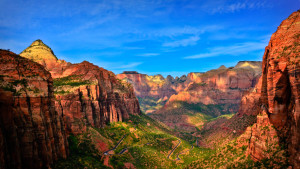Creator Creates Creation
With what lens should we view the early part of Genesis?
Creator Creates Creation
While preparing for the second creation narrative found in the Bible I discovered a profound (and short) way that we need to understand the entirety of Genesis 1-11. This understanding comes from Walter Brueggemann’s Genesis: Interpretation: A Bible Commentary for Teaching and Preaching.
 What Brueggemann is making clear that God is covenantal. God, the Creator, is the one from whom all things live, and move, and have their being. God is the one that molds and shapes all reality. God Creates, actively working to bring about all things according to God’s divine plan. It is only through God that things existed in the past, exist in the present, and will continue to exist in the future. Finally God creates Creation, physical things through which God’s masterpiece will be realized.
What Brueggemann is making clear that God is covenantal. God, the Creator, is the one from whom all things live, and move, and have their being. God is the one that molds and shapes all reality. God Creates, actively working to bring about all things according to God’s divine plan. It is only through God that things existed in the past, exist in the present, and will continue to exist in the future. Finally God creates Creation, physical things through which God’s masterpiece will be realized.
Why does this matter? First, as Brueggemann points out, a Creator is a person with a motive and intent. When we affirm that God’s intentional agency we deny that this world came into being by random chance. Creating is something that only God can do (from nothing) and binds the things made to their maker in a special way. Also, holding to Creation means that the physical reality of this world was (and is, and will forever be) the subject of God’s divine intent. The stuff of this world matters to God.
 The chapters of Genesis leading up to the Call of Abram reinforce this claim of Creator Creates Creation. All of the cosmos is meant to follow the divine intent of its maker. When it does not, the consequences are dire. “The fundamental character of reality (is) derived from and belonging to this sovereign, gracious God who will seek to have his own way.” (Brueggemann) The Call of Abram and the Covenant that God makes with him point to the End, when all of Creation is finally in right relationship with its Creator, as it was Created to be.
The chapters of Genesis leading up to the Call of Abram reinforce this claim of Creator Creates Creation. All of the cosmos is meant to follow the divine intent of its maker. When it does not, the consequences are dire. “The fundamental character of reality (is) derived from and belonging to this sovereign, gracious God who will seek to have his own way.” (Brueggemann) The Call of Abram and the Covenant that God makes with him point to the End, when all of Creation is finally in right relationship with its Creator, as it was Created to be.

